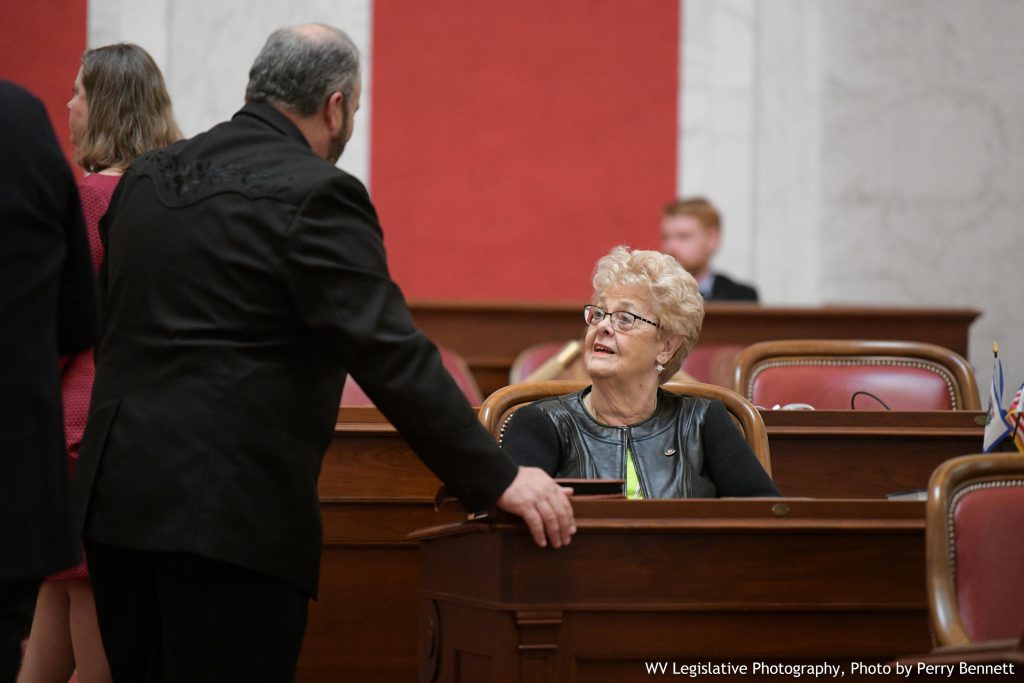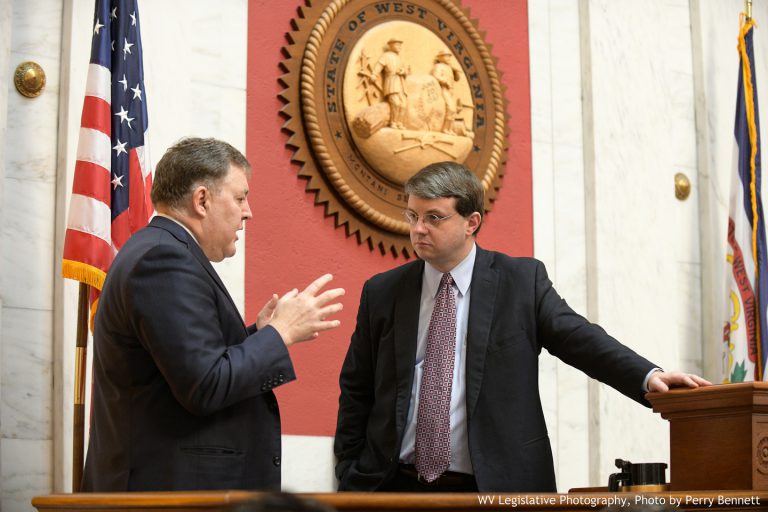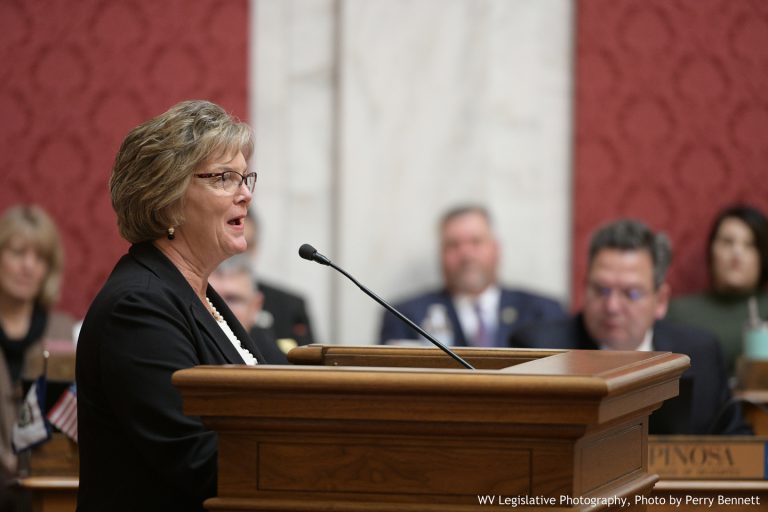“We Have Arrived”
House Majority Leader Amy Summers, didn’t initially picture herself as a delegate or even getting into politics.
Summers, a Republican from Taylor County, works as an ER nurse and lives on an Angus cattle farm. Her father was involved in politics, serving as the Grafton mayor and chairman of the Republican party.
“My dad actually ran for the House of Delegates and lost. He passed away before I got into office. Many people who knew him said he would have been so proud. But no, I didn’t see myself as a delegate. I always had an interest in it and I wasn’t happy with the way things were. I thought I had to do something.”
She was first elected to the House in 2014 and this year, became the first Republican woman to serve as majority leader. When he selected Summers as majority leader, House Speaker Roger Hanshaw, R-Clay, said of her, “Having worked with Amy the past four years on the Judiciary Committee, I’ve seen firsthand the reasoning and tenacity that will help her excel as majority leader.”
“I want to work closely with the speaker,” Summers said. “We are united as a caucus to pass legislation that makes people’s lives better in West Virginia. That’s what we’re focusing on. We are focusing on broadband, foster care, education. We are going to try new things because what we’re doing is not good enough.”
With her background in health, Summers’ passion has been in health care legislation. This is one of the reasons why although the majority leader traditionally serves on the Finance Committee, Summers wanted to continue her role in Health and Human Resources. “That’s where my knowledge base is,” she said. “I want to be somewhere where I will make the most impact.”
Summers has been involved in American Cancer Society initiatives and was part of the “ban the tan” legislation to prohibit teens from using tanning beds.
“We’ve expanded a lot of health care in West Virginia since I’ve been here,” she said. “We have worked with telemedicine so people can call if they can’t get out to a doctor. It makes it difficult when you don’t have wireless but we are working on broadband too.”
Summers also mentioned Sen. Patricia Rucker, R-Jefferson, who was selected to lead the Senate Education Committee. Rucker is the first Republican woman to lead this committee.
“We have arrived,” Summers said. “We are being considered as equals to lead this team.”
“My experience in my four years is that women are respected in our caucus,” Summers added. “In my experience, women are treated equally and are well respected. That is a reflection on this institution and the people elected.”
Summers praised Rucker’s selection for the committee.
“We’ve been told we don’t have the workforce and what are we going to do to educate people in this state,” Summers said. “I’m proud of her and she’s going to do an excellent job.”

Boley will be the longest continuous serving senator come May and at one time was the Senate Minority Leader for three straight Legislature’s. PHOTO: Will Price
Sen. Donna Boley, R-Pleasants, also said she was excited to see Rucker selected to chair the Education Committee.
“Patricia will do a great job as education chair,” Boley said. “It’s great to have her here.”
Boley has seen much change since she was first appointed to the West Virginia Senate in 1985.
Boley is the president pro tempore. She previously was the minority leader in the 70th, 71st, and 72nd Legislatures and at one point in time was the sole Republican in the Senate.
“When I came in, there were about four or five Republicans—all guys,” Boley said. “The Democrats had some—maybe seven or eight women in the Legislature. … It later went down to where I was the only Republican woman.”
Boley, like Summers, didn’t picture herself in the Legislature. She previously was chairwoman of the Republican Party in Pleasants County. After the governor appointed a state senator to fill a circuit judge vacancy judge in Pleasants County, Boley found herself on a short list of possible replacements to fill the Senate seat. And the rest is history.
“As of May 14, I will have been here 34 years,” she said, noting by that time, she will be the longest continuous serving senator.
Boley served on the judiciary until she became minority leader in 1991. She likes serving on the Finance Committee but says sometimes she misses Judiciary.
“Judiciary is a hard committee but you learn a lot from it,” she said, later adding. “I like Finance, though. You see where the money goes.”
Boley, who is the chairwoman of the Confirmations Committee, said a goal is for the committee to meet more often.
“Sometimes, we would go six months without a meeting or approving someone,” she said. “Then, the minute you go back in session, you have to approve them. … We need to have more meetings so if we have problems, we can let the governor know in case he needs to withdraw one.”
For Boley, her favorite part about being a senator isn’t necessarily introducing or passing legislation. Her favorite part is helping constituents. She recalled various phone calls she’s received about issues affecting people back home, including issues with water lines or roads.
“These are the things I like to do,” she said. “I like helping constituents. Sometimes, they don’t know where to go so I like to help them.”
Summers feels the same way, whether she’s working in the ER or in the Capitol.
“I get my most joy when I go to work in the ER,” she added. “I get to make a difference in someone’s life that day, help them cope with a crisis and make them feel better. That brings me joy—changing people’s lives here and in the ER.”




